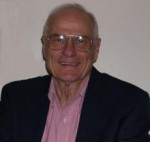Goodman captivates packed Fine Arts Center
If journalist Amy Goodman’s work is considered controversial by many, the crowd gathered at the Fine Arts Center on Saturday afternoon showed there’s something to be said for controversy.Goodman, host of the award-winning radio news show Democracy Now! and News Director for Pacifica Radio, was here to give a speech on the importance of “Independent Media in Times of War” to an almost-packed arts center.
Her message was a simple one: “It’s important that we build the independent media and challenge the corporate media.”
The Harvard-educated and George Polk award-winning Goodman was on campus as the Keynote speaker of the Tenth Annual statewide Women’s Conference.
Coordinated by Castleton Professor Sanjukta Ghosh, the conference – aside from Goodman’s speech — took place in Herrick Auditorium, where students presented their papers on various women’s studies issues.
“It was such an honor to have met Amy Goodman,” said Janet Perron, a C.S.C. junior and one of the organizers of the conference. Sporting her Democracy Now! T-shirt, she was still glowing.
“She’s (Goodman) a prime example of the kind of reporter I wish to become,” Perron said. “Meeting someone like that is exciting and a truly amazing feeling.”
A short, 30-minute video was shown at the beginning of the presentation, showing Goodman talking about a variety of subjects as Public Enemy’s “Don’t Believe the Hype” played in the background.
The video touched on many of the subjects she would talk about in her speech, with video clips of her talking to guests on her show as she asked the question “Why does the rest of the world see a different view of the War in Iraq than we do in the U.S.?”
Before the presentation started, people were passing around fliers and a petition to get Democracy Now! on Vermont Public Radio. About 75 signatures ended up being collected.
More sheets were passed around, allowing people to sign up for a free Democracy Now! e-mail.
Perron then took the stage, calling Goodman “a concerned journalist who gives a voice to the silent majority.” When she finished her introduction, Goodman came out on stage.
Hugging Perron on her way up, Goodman, dressed all in black, smiled as she was given her first standing ovation.
Looking relaxed and ready at the podium, she launched into her speech, covering a wide range of topics, from cable new shows’ one-sided view of the war, for their inability to have peace advocates on their shows as well as Army Generals, and her disgust with oil companies like Exxon/Mobil for making the “largest profits in the history of the world.”
No matter where her speech took her, she always came back to radio.
“Radio provides a forum for discussion,” she said as her sign language translator to her left signed away as she spoke. “It’s a public space where we can build bridges.”
Goodman spoke about the role people have as journalists, talking about video footage of Hurricane Katrina showing a reporter, water up to his knees, talking into the camera as a corpse floated by in the background.
“That’s reporting from the victim’s perspective,” Goodman said.
She read excerpts from her book, ‘The Exception to the Rulers: Exposing Oily Politicians, War Profiteers, and the Media That Love Them,’ covering varying examples of how she claims the American government has overstepped its boundaries when it comes to patriotism and civil liberties.
Goodman touched on many other subjects, including the importance of journalists “not cozying up the administration,” the fact that oil “is the source of so much pain in the world” and the significance of the recent protests on immigration and the death of Rosa Parks, who, with a smile, she called “a world-class troublemaker.”
She ended her speech with a horrifying story about her travels to Timor, a small country above Australia, which was occupied by Indonesian forces in 1975 and stayed that way until a third of the Timor population was killed before their eventual freedom in 2002. During the trip, Goodman and her colleague were beaten by Indonesian troops while they watched as nearly 300 Timor civilians were gunned down by the troops.
When the presentation finished almost two hours later the crowd spilled out into the lobby where donation boxes waited for them, with all proceeds going to the Rutland Women’s Shelter. There was also a table where people could register to vote.
“I think this is great,” Greg Simmons, a hardware store employee, said afterwards, sharing the opinion of many who saw the speech. Simmons, who drove from Chester, Vt., to see the presentation, still seemed excited.
“I thought it was great. It’s not every day you get to see someone like her for free,” he said.
Walking back to campus, not everyone shared in Simmons enthusiasm.
“Did you like that?” John Murphy, a student, asked as a reporter. When the reporter said yes, his face contorted in a look of bewilderment.
Toward the end of her speech, after telling a story about the power the president of the United States has over the world, she left the audience with a simple message that sums up what she’d been telling them the whole night.
“There is one power that is stronger — the power of you. That is the one force that can save the world,” she said.





